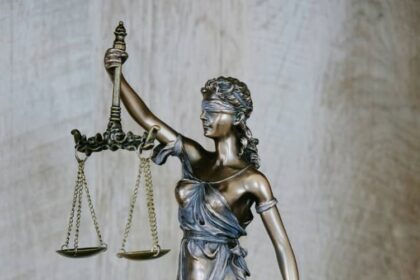RE: OBASI v. MIKSON ESTABLISHMENT INDUSTRIES LTD (2016) LPELR – 40704 (SC)
“As I indicated earlier under the Act, the registration of a foreign judgment can be set aside if the judgment debtor satisfies the Court that the rights under the judgment are not vested in the applicant for registration. The onus is on the judgment debtor to satisfy the Court in this regard.”
The above is the decision of the Supreme Court of Nigeria propounding on a legal principle concerning the registration of foreign judgments under the Foreign Judgments (Reciprocal Enforcement) Act. Below is a detailed analysis of the subject decision of the Supreme Court of Nigeria:
Key Elements
Grounds for Setting Aside Registration:
A foreign judgment can be set aside if the Judgment Debtor can prove that the rights under the judgment are not vested in the applicant seeking registration. This condition introduces a safeguard to prevent unjust claims or fraudulent registrations.
Burden of Proof:
The decision emphasizes that the onus (burden of proof) rests on the Judgment Debtor. This means it is the responsibility of the debtor to demonstrate that the rights under the foreign judgment do not belong to the applicant.
Legal Implications
Protection of Legitimate Claims:
This legal principle ensures that only those with a legitimate interest in the judgment can seek its enforcement. It guards against abuse by requiring the applicant’s rights to be clearly established.
Judgment Debtor’s Defense:
TheJudgment Debtor is provided an opportunity to challenge the registration, but this is not automatic. They must present evidence to satisfy the court of their claim that the applicant lacks the rights under the judgment.
This requirement ensures that the process respects procedural fairness while maintaining the enforceability of valid judgments.
Court’s Role:
The court acts as a neutral arbiter, requiring the judgment/debtor to meet a specific standard of proof. The phrase “satisfies the Court” implies that the evidence presented must be credible and compelling enough to warrant setting aside the registration.
Broader Context
Recognition and Enforcement of Foreign Judgments:
Many legal systems including Nigeria adopt frameworks for the recognition and enforcement of foreign judgments. These typically balance respect for judicial decisions from other jurisdictions with the need to ensure that such enforcement does not violate local legal standards or rights.
Conclusion
This decision of the Supreme Court outlines a balanced approach to foreign judgment registration. It protects the rights of legitimate Applicants while allowing Judgment Debtors a fair opportunity to contest the process if they can provide sufficient evidence. The onus placed on the Judgment Debtor ensures that frivolous objections do not unnecessarily impede the enforcement of valid judgments.









